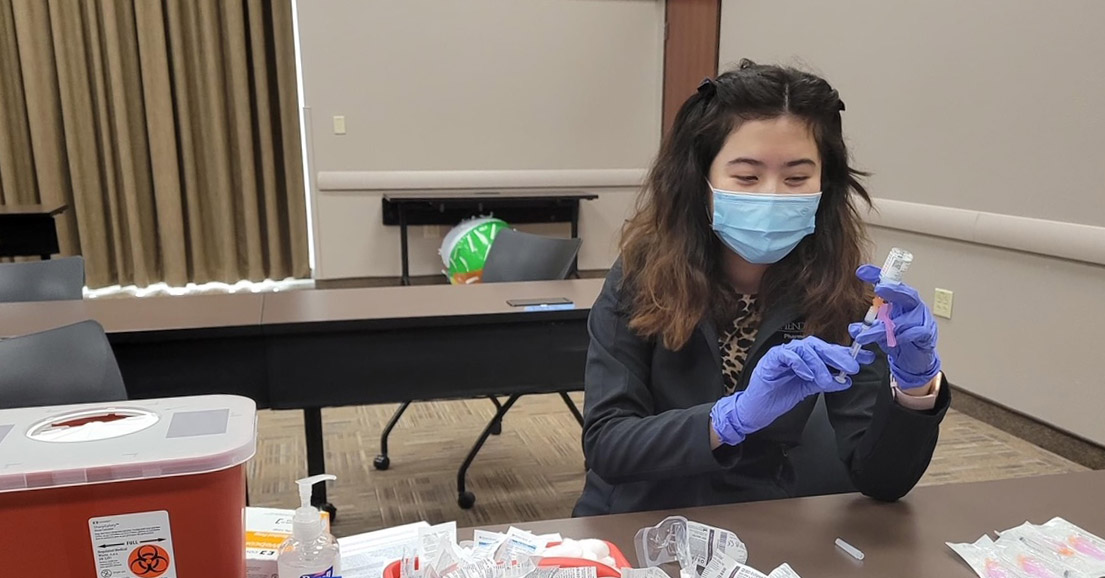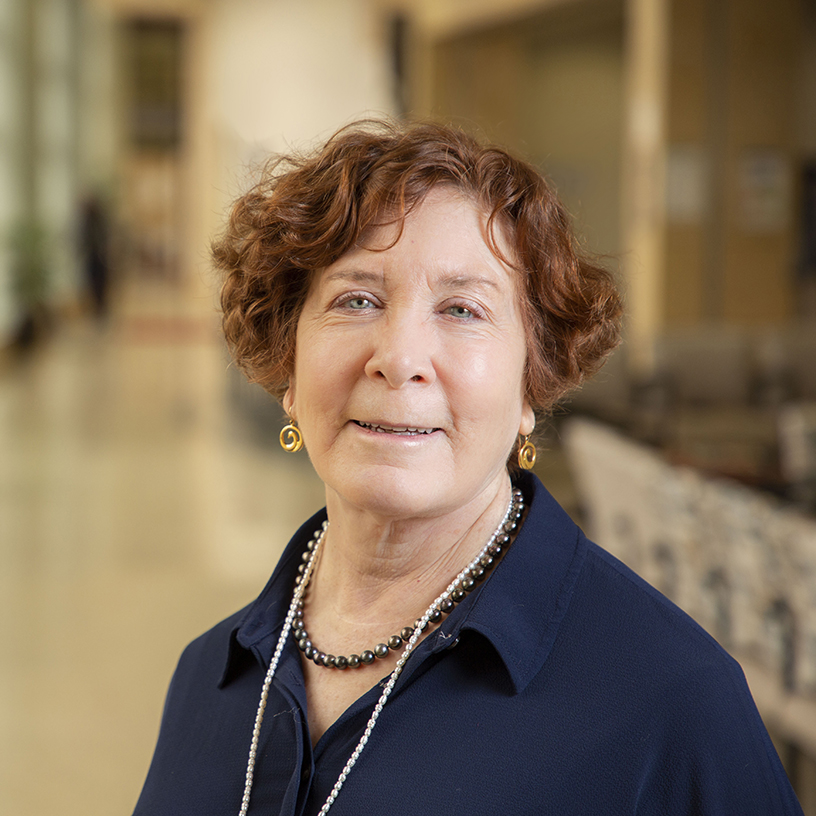TTUHSC Requests Community Input About Pandemic and Vaccine
Survey Seeks Opinions Without Identifying Individual Respondents

As the U.S. ramps up its efforts to vaccinate more people in the ongoing battle against the COVID-19 virus, researchers from the Texas Tech University Health Sciences Center (TTUHSC) Julia Jones Matthews Department of Public Health have developed a survey to learn how many people intend to either get the vaccine or skip it and the reason behind their decision.

Theresa Byrd, Dr.PH., RN
Theresa Byrd, Dr.PH., RN, said the information will help her research team determine where to focus their efforts as they seek to educate the public about the safety and effectiveness of the vaccines.
“Since we know that it will take between 70% and 90% of people to be vaccinated to reach herd immunity, we would like to put together programs to encourage people to have the vaccine,” she added.
Byrd, who serves as chair for the Julia Jones Matthews Department of Public Health, is working to compile and analyze the survey data with department colleague and assistant professor Jeff Dennis, Ph.D., and Kenneth Nugent, M.D., a professor in the TTUHSC School of Medicine Department of Internal Medicine. She said the results would only include specific information such as a respondent’s age, ethnicity and Zip code. That information will help the TTUHSC team demographically assess who is more or less likely to have the vaccine.
“We will look at certain health attitudes and beliefs and see if those influence who will decide to be vaccinated,” Byrd explained. “We can also assess the percentage of respondents from different Zip codes who intend to get the vaccine so we can target our educational programs to those areas.”
The survey is available at https://tthsclubbock.co1.qualtrics.com/jfe/form/SV_5nXYFTPF2gqye8Z (English) or at https://tthsclubbock.co1.qualtrics.com/jfe/form/SV_0oAcE76cGks7dOK (Spanish). Participation is voluntary and all answers are completely anonymous. Byrd said respondents could stop answering questions at any point during the survey.
“The website is secure, and we do not ask for any name or addresses other than Zip code,” Byrd emphasized. “We are not interested in individual responses, rather we want to look at groups of people. We will not know your identity, even when you log into the site. Again, we are not asking for names or other identifying information; whether you intend to be vaccinated or not, we would like to know your thoughts.”
Related Stories
Celebrating Veterans: TTUHSC’s General Martin Clay’s Legacy of Service and Leadership
From his initial enlistment in the Army National Guard 36 years ago to his leadership in military and civilian health care management roles, Major General Martin Clay’s career has been shaped by adaptability, mission focus and service to others.
Texas Tech University Health Sciences Center School of Nursing Named Best Accelerated Bachelor of Science in Nursing Program in Texas
The TTUHSC School of Nursing Accelerated Bachelor of Science in Nursing (BSN) program has been ranked the No. 1 accelerated nursing program in Texas by RegisteredNursing.org.
TTUHSC Names New Regional Dean for the School of Nursing
Louise Rice, DNP, RN, has been named regional dean of the TTUHSC School of Nursing on the Amarillo campus.
Recent Stories
National Academy of Inventors Names TTUHSC Faculty Senior Members
The National Academy of Inventors (NAI) has designated two current and one former TTUHSC faculty researchers as Senior Members.
The John Wayne Cancer Foundation Surgical Oncology Fellowship Program at Texas Tech University Health Sciences Center Announced
TTUHSC is collaborating with the John Wayne Cancer Foundation and has established the Big Cure Endowment, which supports the university’s efforts to reduce cancer incidence and increase survivability of people in rural and underserved areas.
TTUHSC Receives $1 Million Gift from Amarillo National Bank to Expand and Enhance Pediatric Care in the Panhandle
TTUHSC School of Medicine leaders accepted a $1 million philanthropic gift from Amarillo National Bank on Tuesday (Feb. 10), marking a transformational investment in pediatric care for the Texas Panhandle.
